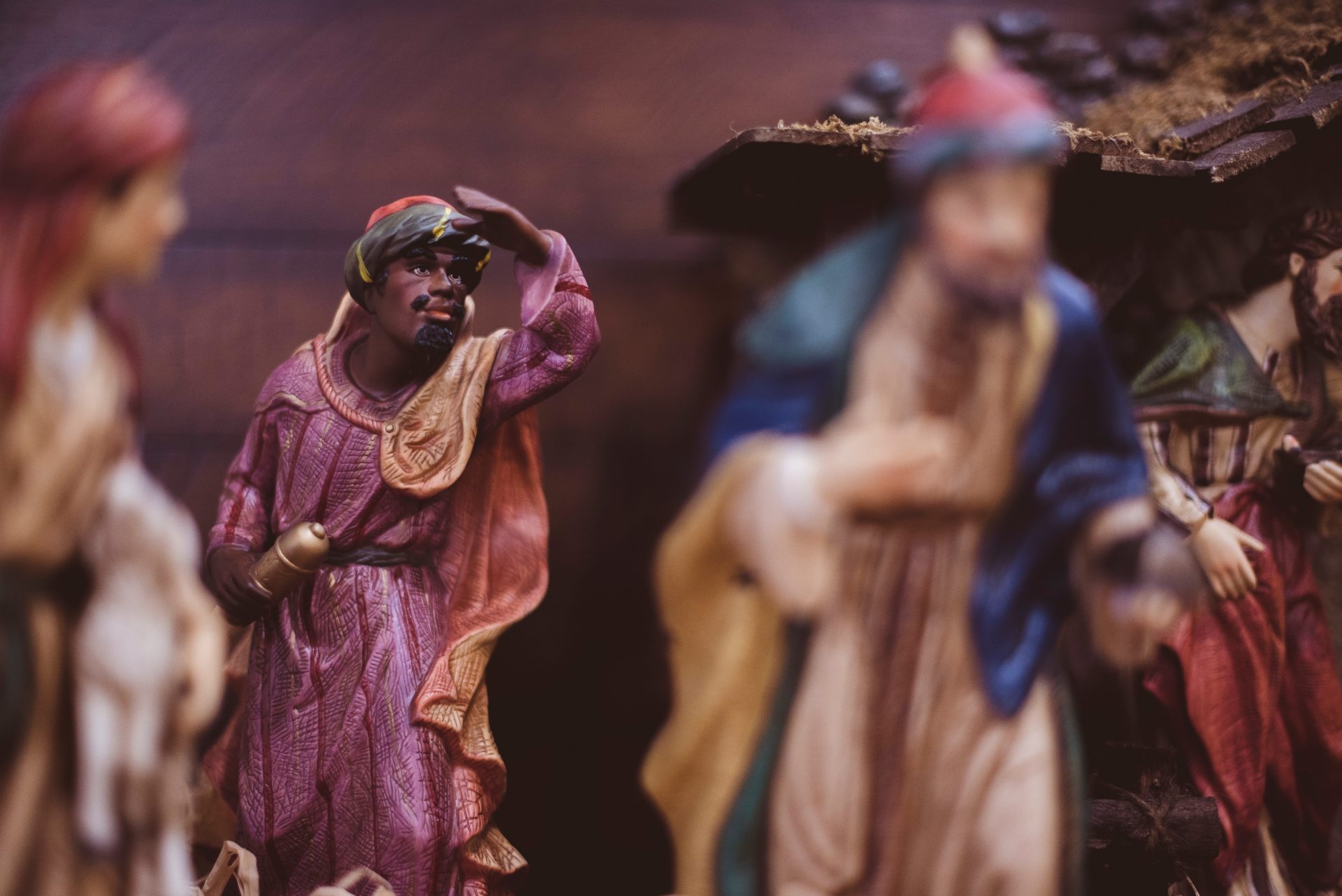Wise people still follow the star
When Jesus was born in Bethlehem on that first Christmas Day, two signs were given to the world to announce what God was doing through the birth of his Son and our Savior, Jesus Christ. According to the Gospel of Luke, we are told that an angel visited the shepherds in the fields where they were watching their flocks. The angel announced the birth of Jesus with these words: “Unto you is born this day in the city of David a Savior, who is Christ the Lord” (Luke 2:11 ESV). It is important for us to remember where God first made that announcement: to shepherds who were among the poorest and most marginalized members of ancient Hebrew society. Shepherds smelled like the work they did. They were always among their animals. They could not maintain the ritual purity that was so important, indeed so essential to the religious life of Israel.
You could say that shepherds were what we have recently come to call “essential workers.” Society needed them to raise sheep that provided meat for food, wool for clothing, skins for bags and pouches and tents for everyday use. Of equal importance, those sheep were used in the Temple in Jerusalem for animal sacrifices on the holiest days in the Jewish calendar. And yet, because of their work with those animals, those shepherds were unable to enter the Temple and offer a sacrifice with the very sheep they had raised. Just like essential workers today whose jobs make them vulnerable and susceptible to COVID-19 infection, those shepherds were subject to touching dead animals or smelling like manure. This made them ritually unclean! Their work was essential, but their presence in society was not!
Now consider that of all the places in the world where God could have announced the birth of the savior of the world, God chose to show up among the shepherds of Bethlehem. Not in Rome where Caesar presided over a global empire. Not in Jerusalem where King Herod sat in his royal palace. Not even inside the walls of Bethlehem itself, since there was no room for Jesus to be born when Mary and Joseph arrived there one night. No, it was shepherds sitting in the open country keeping watch over flocks of sheep that likely belonged to someone else. These men were the poor, the overlooked, the undervalued, and the despised. They were the kind of people that other people in the world would pass by and not give a second thought.
That is where God showed up to announce the birth of Jesus. Understand, that is where God always shows up; on behalf of and in support of the people living on the margins of any society. It begins with God showing up in Egypt in the book of Exodus, not in the palace of the Pharaoh or among the elite families in Egypt. Instead, God showed up in a burning bush in the middle of the desert with the command to Moses to bring the Hebrew slaves out of slavery where they were making bricks to build the royal cities in which they could not live. God showed up on behalf of the poor and the powerless.
Then God did it again with the shepherds in Bethlehem when God showed up among another group of the poor and the powerless. This is where God’s focus is, and this is where God wants the church to place its focus. Not on prosperity theology where the focus is on how we can become rich and successful. Instead, our focus as a church ought to be on the people that society keeps overlooking and underpaying. In this world where so much attention is given to the paths to wealth and prosperity, God could have affirmed that by showing up in Rome or Jerusalem, but God did not do that. God showed up among slaves in Egypt and shepherds in Bethlehem. The first sign given about the birth of Jesus was to the shepherds in the fields outside of Bethlehem.
The magi followed the star to Bethlehem and found what they were looking for. In the same manner, we need to follow Jesus, because he knows how to get us to where we want to go. Jesus knows how to get us to a more just society. Jesus knows how to get us to the Beloved Community.
There was a second sign however, and that was to persons who lived in eastern countries, somewhere in the vast Persian and Greek empires created by Alexander the Great and before him the Persian King Darius. Known as magi, they were most likely astrologers who observed the night sky for any changes or sudden appearances. Those men are important to the story for several reasons. First, because they were Gentiles, or foreigners, non-Jews who were drawn to the place where Jesus was born by following a star in the heavens. Whatever was happening in Bethlehem that night, it was not limited only to the people of Israel or the descendants of Abraham. Whatever God was up to in Bethlehem, it was on behalf of the whole world. By the way, that is what the angel said to those shepherds: “I bring you good tidings of great joy which shall be to all people” (Luke 2:10 KJV).
Christ is not a national savior, whether that nation is ancient Israel or modern America. We may sing the song that says, “God Bless America,” but we must understand that a far better song for understanding God’s intentions is the one that says, “He’s got the whole world in His hands.” Those foreign travelers not only came to Bethlehem to celebrate the birth of Jesus, but they went back home to their country and kindred to announce what God had done in Bethlehem. The coming of the angel to the shepherds was God revealing God’s self to the poor and the powerless. The shining star that captured the attention of the magi was God’s way of announcing to the whole world that a savior had been born.
Notice how the Luke and the Matthew stories overlap. When those magi saw the star, they concluded that such a celestial event must be announcing the birth of a great king. Who else but a child of royal birth would have their birth announcement come by way of a heavenly light? If a king were being born, then where else would you look for that king except in the royal palace? That is why the men went first to the palace of King Herod. They were equating what God was doing with how things usually work in this world. But Herod had no knowledge about this birth, and when he was told about it, he was so jealous for this throne that he was willing to kill anyone who might try to replace him.
Look at this two-part image. First, there is a heavenly baby in a humble stable surrounded by shepherds. Then, as the text points out when the family had moved from the stable to a house, those magi came into the place where Jesus had been brought, probably after he had been circumcised eight days after he had been born. Those magi followed the star to Bethlehem and found what they were looking for.
In the same manner, we need to follow Jesus, because he knows how to get us to where we want to go. Jesus knows how to get us to a more just society. Jesus knows how to get us to the Beloved Community. Jesus knows how to get us out of our current political divisions. Follow Jesus and learn how to love your neighbor as you love yourself. Follow Jesus and learn to beat our swords into plowshares and our spears into pruning hooks and study war no more. This Christmas season, let’s all agree to follow Jesus. Wise people still follow the star!
Dr. Marvin A. McMickle is interim executive minister, Cleveland Baptist Association, American Baptist Churches, USA. He served as president of Colgate Rochester Crozer Divinity School, Rochester, New York, from 2011 to 2019.
The views expressed are those of the author and not necessarily those of American Baptist Home Mission Societies.




